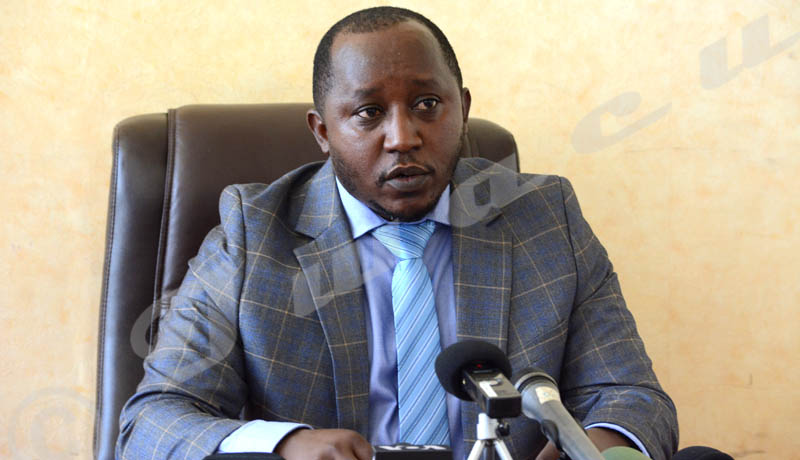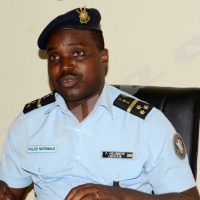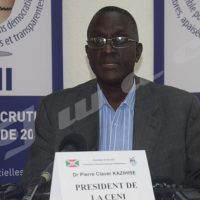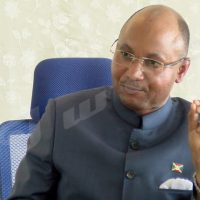On Saturday (December 15th), the spokesman for Burundi President returned to the exchange of letters between President Nkurunziza and his Ugandan counterpart. He speaks about a leak and condemns it.

Jean-Claude Karerwa Ndenzako : “At the summit scheduled for December 27, the Burundian government as well as its interests will be represented”
“The official letters exchanged between the Burundian President Pierre Nkurunziza and his Ugandan counterpart, Yoweri Museveni, are incontestable. But it is the way they have been made public which causes problems, “said Jean-Claude Karerwa Ndenzako, spokesman for President Pierre Nkurunziza.
A bit of humor although the subject is crucial.”I am a believer and I always tell these preachers who read us the Epistles of the Apostles in the churches that such acts are prejudicial. But I do not know if the law will end up punishing those who read St Paul’s Letters to the Corinthians or to others.”
With regard to these correspondences between heads of state, which are leaked before they even reach their destination, he says “we are conducting investigations because it is a crime”.
He recalls that “a correspondence sent to a Head of State has no other addressee than the latter. He is free to answer or appoint a team to define the response modalities.
In view of what has happened, he insists, it is clear that there have been high-level detrimental leaks, beyond the understanding of state secrets.” Some countries have laws in place to combat this kind of cybercrime.”
But President Nkurunziza’s spokesman acknowledges the authenticity of the two correspondences: “It is not an act of identity usurpation by a pirate who puts himself in the shoes of the president to send a letter to his counterpart. No, these are indeed official correspondence exchanged between Heads of State.”
” The Head of State has not been disconcerted … ”
Mr Karerwa Ndenzako says that “the President of the Republic of Burundi was not overwhelmed by the events when he wrote this letter to the Ugandan Head of State.” Even in the correspondence of the latter, he says, there is nothing disconcerting.
Furthermore, this spokesman for the Burundian President praises the form of the presidential missive: ” The letter written by our head of state was a beautiful one, those who read it attest to it.”There was the truth about Burundi. The whole truth about its relations with the countries of the region was said.
The truth, he says, is a double-edged sword which does good when it covers you or hurts when it exposes some intentions. “That’s what we found. The Ugandan president misinterpreted the content of his counterpart’s letter.”
When the writings go straight to the heart, he says, it means that the mission has been well accomplished. Moreover, he assures that they will not continue to exchange correspondences.
They have other means of communicating like through summits, the phone, interviews or by sending emissaries. He reiterates that “the head of state never found himself disconcerted after the correspondence of the Ugandan president.”
Mr. Ndezako said President Nkurunziza has not even expressed himself about this letter from his Ugandan counterpart. “It is possible that there is no need responding. Only actions count,” he said.
As for this summit scheduled for December 27, the Burundian government as well as its interests will be represented. ” There is no harm if the President himself does not show up at this summit. But if he sees that his presence is paramount, he will take part in this summit “.
Analysis by Guibert Mbonimpa
Bujumbura prevents the escalation of the situation
Bujumbura puts water in its wine. “The Burundian government and its interests will be represented,” said Nkurunziza’s spokesman Jean-Claude Ndenzako, referring to the ordinary summit of Heads of State of the EAC scheduled for 27 December.
His demand for an extraordinary summit on “open conflict between Burundi and Rwanda”, as a precondition has fizzled out. This chief of the presidential communication hastened to say that “the head of state never found himself disconcerted, following this correspondence of the Ugandan president “.
The option of appeasement in relations between Bujumbura and the boss of the EAC is clearly preferred. And for good reason, the “call to order” by President Museveni to his Burundian counterpart sounded like a direct answer, insisting on a conquest of power by the CNDD-FDD ruling party “thanks to an agreement of peace achieved thanks to the EAC mediation”.
In his letter of 4 December to the Ugandan president, The Burundian President reiterated his position on the coup plotters and terrorists.
The “5th and last round of the dialogue” should allow ” the sharing of the roadmap for the 2020 elections already accepted and signed by all political parties “.
And President Nkurunziza insisted: “I would like to point out that there is no political party outside Burundi, apart from individuals sought by the Burundian judiciary who claim to be political leaders.”
This radicalization of Bujumbura excludes “the give and receive appointment” implying recognition of the other as a protagonist in the ongoing crisis by all stakeholders.
“The government likes dialogue, provided it is with itself,” said Richard Moncrieff, ICG Central Africa director, in an interview with Jeune Afrique, published on December 4, 2017, on the issues of the new electoral calendar in DRC.
These words, under that Act III of this epistolary war, seem grossly news for the Burundian government, a few days before the next summit of Heads of State of the EAC in Arusha.
At the time of going to press, the deputy secretary general of the East African Community, Christophe Bazivamo, announced that the summit of the EAC Heads of State will not be held on December 27th as it was announced.



















 IWACU Open Data
IWACU Open Data

